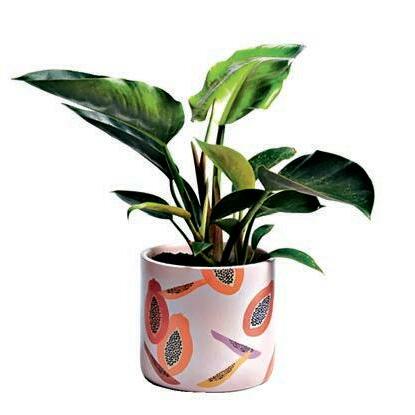
4 minute read
Not alone
WHY ARE WE FEELING DISCONNECTED
AllWHEN THERE ARE SO MANY WAYS TO STAY IN TOUCH? WHAT ARE THE SIGNS OF LONELINESS, the AND WHAT CAN YOU DO ABOUT IT? WORDS LIZ McGRATH lonely people

Perth mum-oftwo Tonia Dunne knows only too well the crippling effects of loneliness.
The 57-year-old has three jobs, a jam-packed life and a wide circle of friends, but “I’ve been lonely and felt empty for 30 years”, Tonia says.
“I lost Dad in a car accident when I was 17 years old, and Mum died when I was 48. My marriage ended, my kids are grown up now and I’m estranged from my sibling,” she says.
“My kids and all of my friends are amazing but at times I feel very alone.”
Tonia is not the only one feeling lonely.
The 20th century French-German philosopher and humanitarian Albert Schweitzer famously said: “We are all so much together, but we are all dying of loneliness.”
Fast forward to modern society with its busier lifestyles, career pressures and lack of time to socialise, and we’re living in what some describe as “the age of loneliness”.

All by myself
The 2018 Australian Loneliness Report, a study by the Australian Psychological Society and Swinburne University of Technology, found one in four Australians is lonely.
Also, half of us feel lonely for at least one day a week and almost 30 per cent of us don’t feel part of a circle of friends. And, it’s not just the elderly.
More than one in three young adults aged 18 to 25 reported problematic levels of loneliness in a 2019 Swinburne University and VicHealth survey.
“There are many factors that make people feel lonely, and the COVID pandemic has been another significant one,” Swinburne’s Michelle Lim says.
“Many of us, including young people who appear popular and connected, lack strong meaningful relationships which enrich our lives and protect our physical and mental health,” she says.
Dr Lim is also the scientific chair of Ending Loneliness Together, a national network of organisations that have been working together since 2016 to address the emerging problem of loneliness in Australia.


Alan Woodward
Toll on health
Loneliness has become a public health issue of such epic proportions across all age groups that some experts warn of “a loneliness epidemic”.
“It can be hard to admit you’re lonely and sadly there’s a stigma around it, which can make people feel even more isolated,” says Alan Woodward, a mental health and suicide prevention advisor and commissioner with the National Mental Health Commission.
“As human beings our very natures, our DNA, has some desire for connection. If that’s lacking, our quality of life is affected,” Alan says.
And it means we are more likely to be depressed and have worse mental and physical health, according to the Australian Institute of Health and Welfare.
Like the UK and Japan, do we need a Minister for Loneliness?
“I think that rather than that, we need a national discussion around mental and physical health and wellbeing,” Alan says.
“Australians have a pretty good reputation for being friendly and welcoming, and we need to continue to ensure that we’re an open and inclusive society for all.”
Watch list
Dr Lim says some of the signs to look out for include: ✱ You feel like you are not “in tune” with others ✱ You feel your relationships aren’t meaningful ✱ You feel like you don’t belong ✱ You don’t have a friendship group ✱ You feel like no-one understands you ✱ You don’t have shared interests with others ✱ There is no-one you can turn to
What to do if you feel lonely
“If you are experiencing loneliness, the first thing is to recognise that this is real and that people do become lonely. It doesn’t mean there’s anything wrong with you,” Alan says.
Dr Lim suggests that as well as finding people with similar interests or volunteering for a cause you’re passionate about, you should start by deepening the relationships you have with people you already know, such as your neighbours.
“The challenge is to focus on building bonds with those around us,” she says.
Tonia is doing exactly that. “I’ve sought professional help and I’m talking about how I feel with my friends. I can see that changes are happening,” she says.
IF YOU FEEL ISOLATED AND NEED SUPPORT CALL LIFELINE ON 131 114 OR BEYOND BLUE ON 1300 224 636.


RECYCLABLE PACKAGING VEGAN FRIENDLY1










